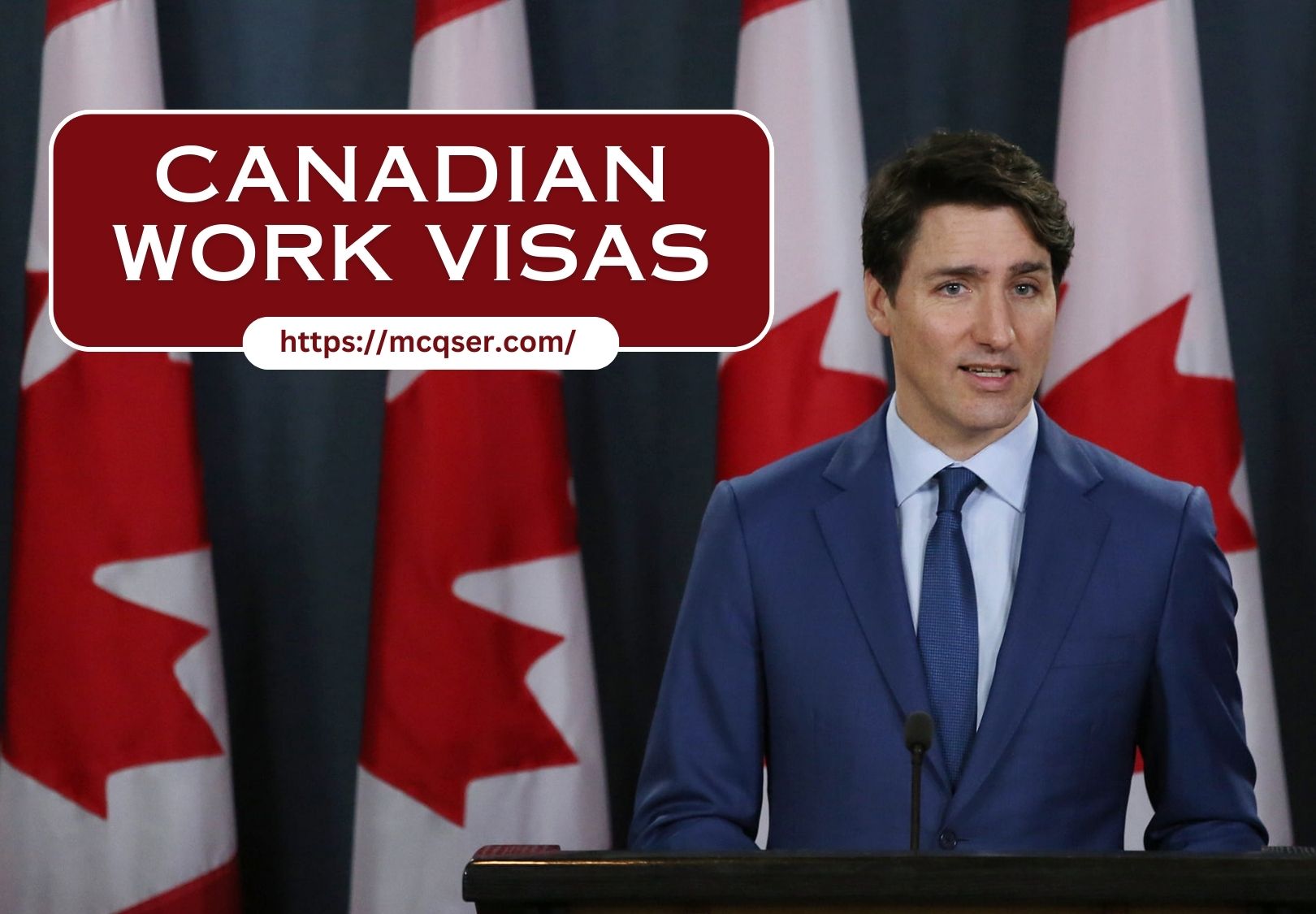Canadian Work Visas: Canada, a nation renowned for its breathtaking landscapes, multicultural society, and thriving economy, has emerged as a beacon for aspiring individuals seeking professional opportunities and a fulfilling life abroad. To facilitate the influx of skilled workers, Canada offers a diverse array of work visa programs tailored to specific occupations and circumstances. This comprehensive guide delves into the intricacies of Canadian work visas, empowering you to navigate the process and embark on a new chapter in the land of maple leaves.
Types of Canadian Work Visas
The Canadian immigration system boasts a multitude of Canadian Work Visas categories, each designed to address the specific needs of employers and potential immigrants. These categories can be broadly classified into two main groups:
Employer-Specific Work Permits:
These permits are granted to foreign nationals who have secured a valid job offer from a Canadian employer. Employer-specific work permits cater to a wide range of occupations, from skilled trades to highly specialized professions.
- Temporary Foreign Worker Program (TFWP): The TFWP is the most common pathway for foreign nationals to obtain a work permit in Canada. It encompasses a broad spectrum of occupations, including agriculture, manufacturing, and technology.
- International Mobility Program (IMP): The IMP facilitates the entry of foreign nationals working in specific fields, such as culture, sports, and academia.
- Global Talent Stream: This stream expedites the processing of work permit applications for highly skilled workers in high-demand occupations.
Open Work Permits:
These permits allow foreign nationals to work for any employer in Canada, providing them with greater flexibility and freedom in the job market.
- Spousal Work Permit: Spouses of Canadian citizens or permanent residents can obtain an open work permit, enabling them to work legally in Canada.
- Working Holiday Visas: These visas provide young individuals from specific countries with the opportunity to work and travel in Canada for an extended period.
- Post-Graduation Work Permit: This permit allows international students who have graduated from a Canadian educational institution to gain valuable work experience in Canada.
Eligibility Requirements for Canadian Work Visas
To qualify for a Canadian work visas, applicants must meet specific eligibility criteria, which vary depending on the visa category. However, some common requirements include:
- Valid Passport or Travel Document: Applicants must possess a valid passport or travel document from their country of citizenship.
- Job Offer or Work Authorization: For employer-specific work permits, a valid job offer from a Canadian employer is essential. Open work permits may require specific authorization, such as spousal status or work holiday eligibility.
- Meet Educational and Experience Requirements: Applicants must possess the requisite educational qualifications and work experience relevant to the occupation they intend to pursue in Canada.
- Language Proficiency: Demonstrating proficiency in English or French, the official languages of Canada, is often mandatory.
- Medical Examination: Applicants may be required to undergo a medical examination to ensure they meet health standards for immigration to Canada.
- Financial Requirements: Applicants must demonstrate sufficient financial resources to support themselves during their stay in Canada.

Navigating the Application Process
The application process for a Canadian work visa typically involves the following steps:
- Determine Eligibility: Assess your eligibility based on the visa category that best suits your circumstances.
- Gather Required Documents: Compile all necessary documents, including passport, job offer, educational credentials, language proficiency proofs, and medical examination results.
- Complete Application Form: Carefully fill out the appropriate application form, ensuring all information is accurate and complete.
- Pay Application Fees: Submit the required application fees, which vary depending on the visa category.
- Submit Application: Submit your application, along with all supporting documents, to the Canadian government through the designated online portal or visa application center.
- Biometrics and Interview: Depending on the visa category, you may be required to attend biometrics collection and/or an interview.
- Processing Time: Processing times for work visa applications can vary depending on the visa category and workload.
- Visa Approval and Arrival: Upon approval, you will receive your work visa, allowing you to enter and work in Canada.
- Work Permit Activation: Once you arrive in Canada, activate your work permit by following the instructions provided by the Canadian government.
Financial Considerations for Canadian Work Visas
When relocating to Canada for work, financial planning is crucial to ensure a smooth transition. Here are some key financial considerations:
- Cost of Living: Canada’s cost of living varies across cities and provinces. Research the living expenses in your chosen location to determine your budget.
- Accommodation: Finding suitable accommodation is essential. Consider factors such as location, rent, and utilities.
- Transportation: Familiarize yourself with transportation options in your new city and budget accordingly.
- Healthcare: Canada’s healthcare system is primarily taxpayer-funded. However, private health insurance may be beneficial for certain expenses.
- Taxes: Understand the Canadian tax system and prepare for tax filing obligations.
- Savings and Investments: Consider establishing a savings account and exploring investment opportunities to secure your financial future in Canada.
Additional Considerations for a Successful Transition
Beyond financial planning, several factors contribute to a successful transition to Canada:
- Cultural Integration: Embrace the Canadian way of life, learn about local customs and traditions, and engage with the diverse community.
- Networking: Build connections with colleagues, industry professionals, and fellow immigrants to expand your network and gain insights.
- Professional Development: Stay up-to-date with industry trends, pursue professional development opportunities, and enhance your employability.
- Work-Life Balance: Maintain a healthy work-life balance by exploring hobbies, pursuing personal interests, and making time for relaxation.
Conclusion:
Canada, with its open arms and welcoming spirit, beckons individuals seeking professional growth, cultural immersion, and a fulfilling life abroad. By understanding the intricacies of Canadian work visas, navigating the application process, and planning for your financial future, you can confidently embark on your Canadian adventure, ready to embrace the opportunities and experiences that await. Remember, Canada is not just a destination; it’s a journey of self-discovery, professional advancement, and personal fulfillment.
